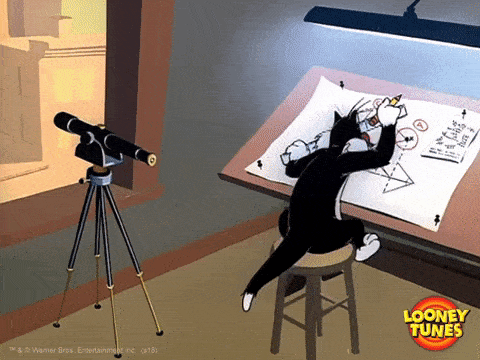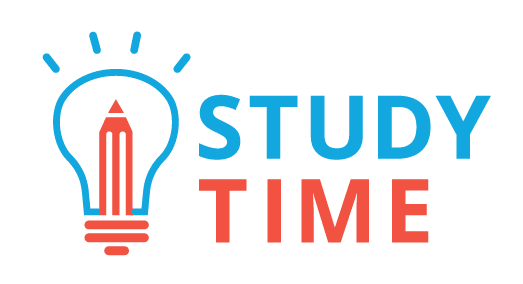It’s your first year of NCEA exams, and you’re looking at the stressed-out year 12’s, the lifeless Year 13’s, and (if you’re a normal, reasonable human being) you’re probably starting to question what the heck you got yourself into.
Welcome to the weird world of NCEA.
Year 11’s… this one is for you.
How To Deal With The Pressure
So the initial excitement is over (if it was there to begin with), you’ve made the most of your year 11 privileges at the canteen, and now you’re coming face to face with your first exams.
The marking schedule likely makes no sense, you’ve got “internals,” “credits” and “assessment schedules” running around your head – because your English teacher has been harping on about them for months, and you still don’t know what it all actually means.
On top of that, your parents have suddenly decided that you need to become a child genius overnight, and (again, if you’re being a reasonable person) you’re probably getting quite stressed.
So how do you deal with the pressure?
1. Make a Plan
We’re going to keep it simple. It might seem like a great idea to avoid all your problems, but in the end, you need some sort of plan. The best way to make sure that you don’t burn out (by working too hard, too soon) or not get your work done (doing too little, too late) is to make a plan.

The structure (and aesthetic) of your plan doesn’t matter. The important thing here is your thought process. Making a plan involves evaluating what you need to do, and looking at how much time you have in order to get everything done. As long as you’re making a realistic plan of what you’re going to do, then you’ll be less stressed because you know that no matter what your parents say, you’ve got it sorted.
If you haven’t got it sorted, here’s an article on how to make the perfect study plan.
2. Play the Long Game
You’re in this for the long haul, and that means you can’t treat these exams like a singular task that you can pull an all-nighter to fix, and then get on with your life. To be quite honest, you’ll have to deal with exams for a few years, and the best thing you can do is play the long game.
Think about it this way. If you’re playing a sports game, you don’t want to awkwardly start sprinting at the start of the game, and then die 10 minutes later (because let’s be honest, we all skipped cardio over lockdown).
Instead, you’ll want to pace yourself, so that you manage to survive the entire game, and then your team also has a better chance of winning.
Essentially, you’ll want to do the same thing with your exams. Pace yourself.

If you pull all-nighters and start spending all your energy on “fixing your life” and finally understanding physics with 2 days to spare, you’ll burn out pretty quickly, and you won’t be working at your best for your other exams.
What does this actually mean?
You can’t control your environment. You can’t control whether NCEA throws exams at you. You can’t control your parents’ reactions, or whether you have your favourite meal for dinner. What you can control, is yourself.
Even if everything around you is turning to custard, you can always control your response to stress and pressure. Therefore, if you’re the only thing you can control, then the best way to deal with pressure is to look after yourself.
(And no, this isn’t an excuse to binge Euphoria and call it self care – looking after your mental health, in the long run, means actually studying so that you don’t get super stressed later).
It sounds vague and cliché, but your physical and mental health are so important. You’re stuck in this body, so it makes sense that you should spend a bit of time making sure that everything runs as smoothly as possible, right?
Here are a few things you can do:
- Take regular study breaks (but actually study – even 10 minutes a day adds up!)
- Go for walks outside, and see if you can spot a pretty leaf, or look for patterns in the clouds. Take some time to switch off and appreciate nature. It helps.
- Spend some time with your friends and family.
- Eat regular meals.
- Make sure you’re getting 8 hours of sleep.
Figuring Out What The Examiner Wants From You
Not only do you have to learn the content for your exams, but you also have a random old woman in Wellington (let’s call her Deborah) who is marking your work. You’ll probably never meet her, she has no idea who you are, and yet she has the power to say yay or nay to your essays.
She reads hundreds of essays a day, and honestly, she needs a break. Your job is to make her life slightly easier, and figure out exactly what she’s looking for when she’s marking your work.
Put yourself in Deborah’s shoes for a minute.

You’re reading a student’s exam answers, and you can immediately see that they’ve used the keywords from the essay question, or that they’ve said “gene” instead of “jean” in biology (it’s a good start). Once you see the key language being used, or their essay is structured nicely and is easy to read, it’s fairly easy to whack an excellence on their page, and go grab a cup of tea.
(Deborah approves)
Here’s what you can do:
1. Use the Key Language
As we said earlier, the examiner is looking for key language. These are basically like giant neon signs saying “I know what I’m talking about!” and without these, it’s a lot harder to get those merits and excellences.

So, make sure that you’re taking note of the basic definitions and key terms for the sciences, and for English, it isn’t “good guy” and “bad guy” anymore – it’s “protagonist” and “antagonist.” These might seem like really small changes, but we promise you, they all add up.
2. Look at the Assessment Schedules
The assessment schedule is the examiner’s cheat sheet when they mark your work. What better way to see how you’ll be marked than to look at the cheat sheet itself?
Essentially, the assessment schedule will tell you exactly what you need for each question in order to get achieved, merit, or excellence. This is a great way to study, because you can practice questions yourself, and then have a look at what you did, and what you’ve missed out on (so that you can improve later).
3. Do Practice Papers
We’ve said it before, and we’ll say it again. The best way to prepare for exams is to do exams yourself. Testing yourself at home, under exam conditions, is the best way to practice for the real thing.

If you’re practising with past papers, here are some of our tips:
- Test yourself under exam conditions: This means setting a timer, and not blasting music while you study.
- Don’t take breaks: see if you can do a whole exam paper in one hour, just like you would in the exam.
- Check if you’re allowed a calculator, and if you’re not, then don’t use one!
- Don’t have your notes open, or have quotes written down next to you.
- Once you’ve attempted a paper, have another go with your notes available, and see how much you can add to your answers (in another coloured pen, so that you can see what you could remember initially)
4. Look at the Excellence Exemplars
The excellence exemplars are a great resource, even if you’re not aiming for excellence yourself. It’s a great way to see how you respond to the question you’re given, and you can see what you need to try and do when you answer similar questions.
Excellence exemplars are perfect for when you’re confused or stuck on how to answer questions. If you have no idea what the examiner wants from you, have a look at some exemplars, and see how the student breaks down each component, and answers each part of the question.
A word of caution: While the exemplars are great, they are never perfect. Make sure that you check the assessment schedule for the correct answers. The excellence exemplars are just student answers, which may still receive good marks, even if they have minor errors in them.
5. Mark Your Own Work
Once you’ve attempted some past papers, and looked at the excellence exemplars, you’re ready to mark your own work.
This is like your final test. You get to pretend to be Deborah for a minute and use the assessment schedule to mark your own work.

The trick with this is to pretend it’s not your own work. Whether you think you knew what you were talking about, or you know you had no clue, check what you actually wrote. There’s a difference between what you understood, and what you were able to tell the examiner.
If you’re a tough marker, then you’ll be able to pick out areas that need improvement, and you can realistically give yourself a grade. Then, you’ll be able to go away and study the content that you missed, and you’ll be able to prioritise your studying so that you’re not trying to cram 100 things into your brain at once.
Comparing Practice Exams and Externals
You’re probably reading this article because your mock exams (or ‘practice exams’ if we’re being proper here) are fast approaching. The chances are, you’ve seen the Year 12’s chilling at the canteen, or the Year 13’s who are doing their annual Maccas run to get through the exam period. Why aren’t they stressing out as much as you are?
While it may seem cool to write off your exams, you should definitely take them seriously, because they’re your best method of preparing for the real thing at the end of the year.
If you’re preparing for a basketball game, you’ll do some cardio to keep fit, and shoot hoops to practice your aim.

In the same way, the best way to practise for your exams (and get the best grades you can) is to study for your mock exams, and use them as a way to practise for the real thing.
Believe it or not, that’s why they’re called “Practice Exams.”
If you take your practice exams seriously, then you can see what works and what doesn’t, and then adapt your study habits accordingly. Also, if you’ve already memorised your quotes for English, or gone over a bunch of practice questions for maths, then you won’t have to cram that in at the end of the year.
Why Should You Study for Your Practice Exams?
- If you study for your mocks, you’ll be able to chill out a bit more for your externals.
- You’ll have extra time to master the tricky parts of each subject before your externals (calculus and physics, we’re looking at you).
- You can mess up, and there aren’t major consequences! This is the time to experiment with your study techniques and see what works best for you.
- You’ll be more confident when it comes to your externals, because you know that you’ve aced the practice exams already.
- If you don’t do well in your practice exams, you can see which areas need more work, and you can see what you did well on (you can adapt your studying based on your practice exam results).
- It’s the best way to prepare for your externals – it is literally a trial run with no consequences.
- You can establish a really good routine, whether this is your daily routine, or a long term study plan. Say you start studying 2 weeks before mocks, and realise that you ran out of time. For your externals, you can start 3 weeks earlier, and you’ll have learnt from your practice exams.
How Does COVID-19 Impact Your Exams?
First of all, entering your first year of NCEA is hard enough without a global pandemic going on. If you’re stressing out about how COVID-19 will affect your education, that’s absolutely valid.
Secondly, don’t be too hard on yourself. You may not have the grades that you were hoping for, but considering everything that’s happening at the moment, you should be proud of the effort that you’ve put it, and the perseverance that you’ve shown this year.
It’s tough, but you’ll be okay.
With that being said, here are our thoughts on how COVID may impact your exams, and what you can do about it.
Where To Look For Information About COVID-19
First of all, keep up to date with the national announcements about COVID-19, as this is our most reliable and timely source of information. All schools will be following the guidelines from the government, so this is a good source to check if you’re worried about how COVID-19 is progressing.
The more definitive place to ask about your learning is your school. Every school is handling things slightly differently, so get in touch with your school to have a genuine idea of what’s going on, and how you will personally be affected.

Other places you can look include the NCEA exam timetable, so check the NZQA website for information about your exams. This is a good idea of when your exams will be held, if everything goes according to plan.
Here’s a quick summary of how NCEA has changed this year, due to the coronavirus.
- Exam dates have been extended, to give you more time to prepare. Exams start on the 16th of November (instead of the 6th) and end of the 9th of December (instead of the 2nd).
- Portfolios are now due on the 12th of November so that you have more time to prepare these.
- You now receive Learning Recognition (LR) credits. For every 5 credits that you earn, you can be awarded an additional 1 credit (and up to 10 total additional credits at NCEA Level 1).
- Endorsements are now awarded at 46 credits, instead of the original 50 credits that were required. This means that if you have 46 merit or excellence credits, you will earn an NCEA Level 1 merit or excellence endorsement.
If You’re an Auckland student:
- You will receive 1 LR credit for every 4 credits that you earn, with a maximum of 16 total LR credits.
- If you earn 44 credits at merit or excellence, you will earn an endorsement (while other regions have to meet the 46 credit requirement)
If you’d like more information, check the NZQA website to see the changes.
Wrap Up
Despite the pressure from your parents and teachers, we know that you’ve got this. If you look after your mental and physical health, make a plan and start studying early, and make the most of your practice exams, you’ll have no reason to panic.
NCEA is a tough one, and you’re in it for the long haul.
But before you know it, your exams will be behind you, you’ll be having an ice cream on the beach, and you’ll look back and wonder why you were so stressed.
Until then, good luck, and we believe in you. You’ve got this.

0 Comments